Life
Sign up for our newsletter
We summarize the week's scientific breakthroughs every Thursday.
-
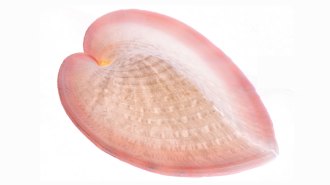 Life
LifeNature’s first fiber optics could light the way to internet innovation
Mineral crystals in heart cockles’ shells protect symbiotic algae from ultraviolet rays and could lead to innovations in internet infrastructure.
By Elie Dolgin -
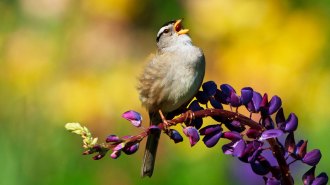 Neuroscience
NeuroscienceSome people don’t have a mind’s eye. Scientists want to know why
The senses of sight and sound are usually mingled in the brain, but not for people with aphantasia.
-
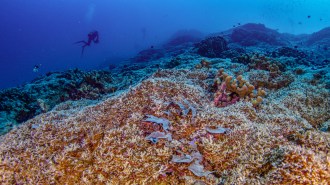 Oceans
OceansThe world’s largest coral was discovered in the South Pacific
The behemoth coral, discovered in October in the Solomon Islands, is longer than a blue whale and older than the United States.
By Nikk Ogasa -
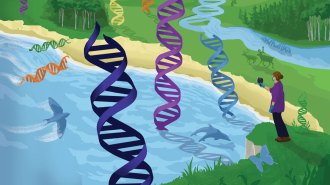 Animals
AnimalsStray DNA is all around us. It could revolutionize conservation
Environmental DNA harvested from the ocean, land and air can help scientists monitor wildlife. The challenge is figuring out how to interpret this eDNA.
-
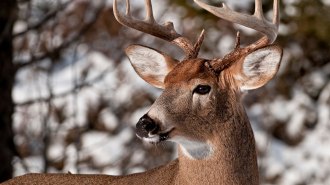 Health & Medicine
Health & MedicineA twisted protein sheds light on chronic wasting disease in deer
The detailed structure of a misfolded protein from a diseased deer could help explain why the disease hasn’t made the leap to humans.
-
 Genetics
GeneticsA common drug may help treat a rare genetic disease
Ibuprofen counters problems caused by mutations in the MAN1B1 gene, fruit fly tests show. Early results in three children are ”fairly positive.”
-
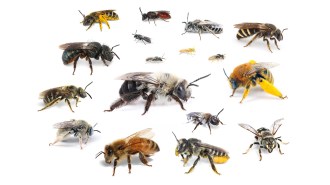 Animals
AnimalsBees flying near cars are dying by the millions, a roadkill study suggests
Scientists in Utah put sticky traps on car bumpers to tally how many bees get hit on a typical trip. The broader toll is immense, they estimate.
By Amanda Heidt -
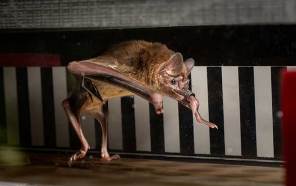 Animals
AnimalsPutting vampire bats on treadmills reveals an unusual metabolism
A bat gym shows that vampires are more like some insects, burning amino acids from blood proteins rather than the carbs or fats other mammals rely on.
By Susan Milius -
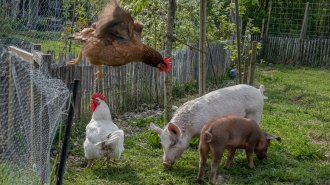 Health & Medicine
Health & MedicineWhy finding bird flu in a U.S. pig for the first time is raising new worries
Swine can act as so-called “mixing vessels” for human and bird flus, giving avian viruses an opportunity to adapt for spreading in people.
-
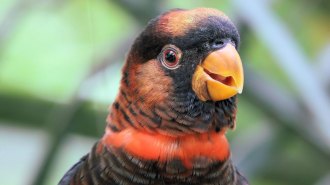 Animals
AnimalsA single enzyme can alter the vibrant colors in parrot plumage
Tweaking the chemical composition of a parrot-specific pigment can shift feathers from red to yellow or green.
-
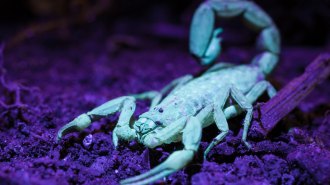 Life
LifeBackyard explorers discovered 15 new examples of glowing life
New finds in the Finding Fluorescence site include a Japanese beetle with a glowing blue mouth and a mushroom that gleamed bright red under its cap.
By Meghan Rosen -
 Animals
AnimalsThis marine biologist discovered a unique blue whale population in Sri Lanka
In addition to studying the world’s only nonmigratory blue whales, marine biologist Asha de Vos seeks to change her compatriots’ attitudes toward the ocean.
By Sandy Ong